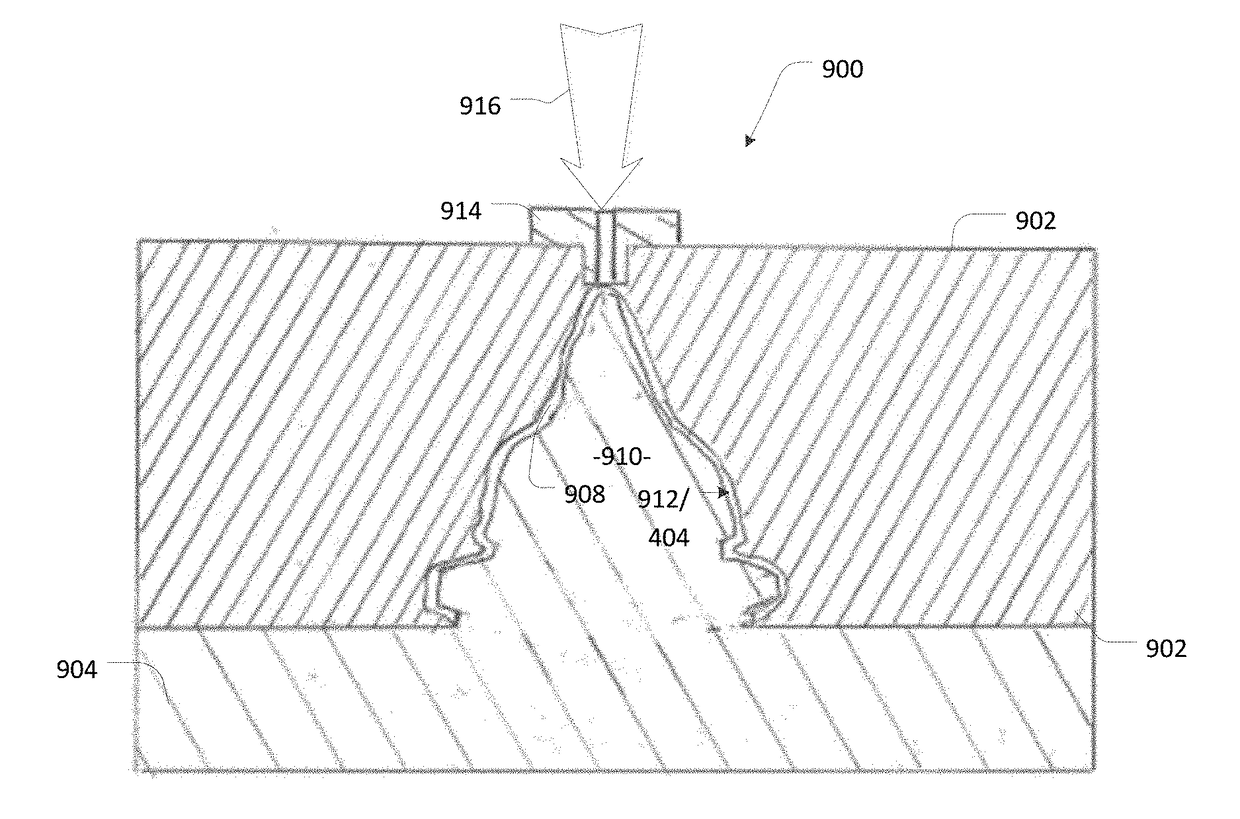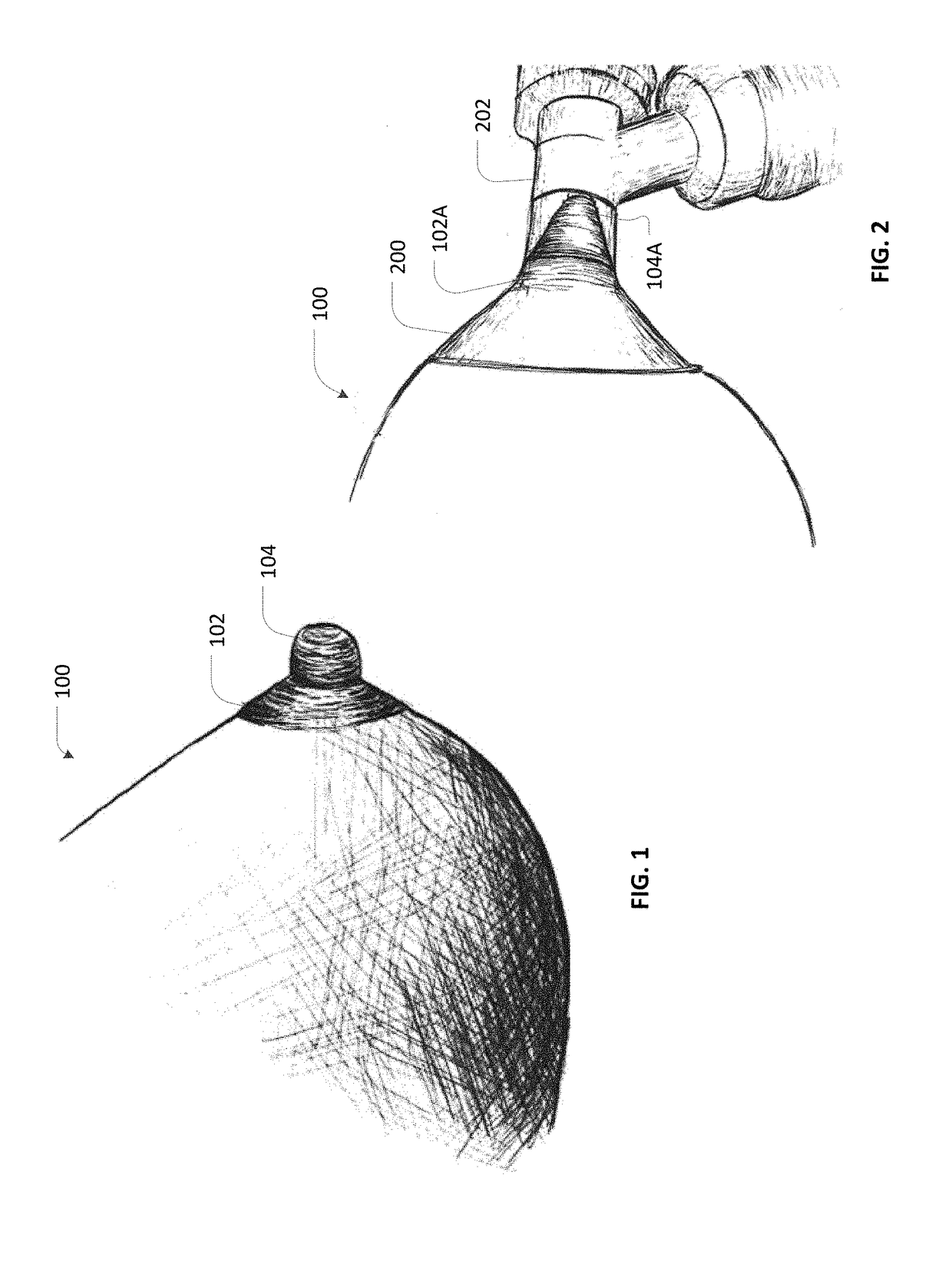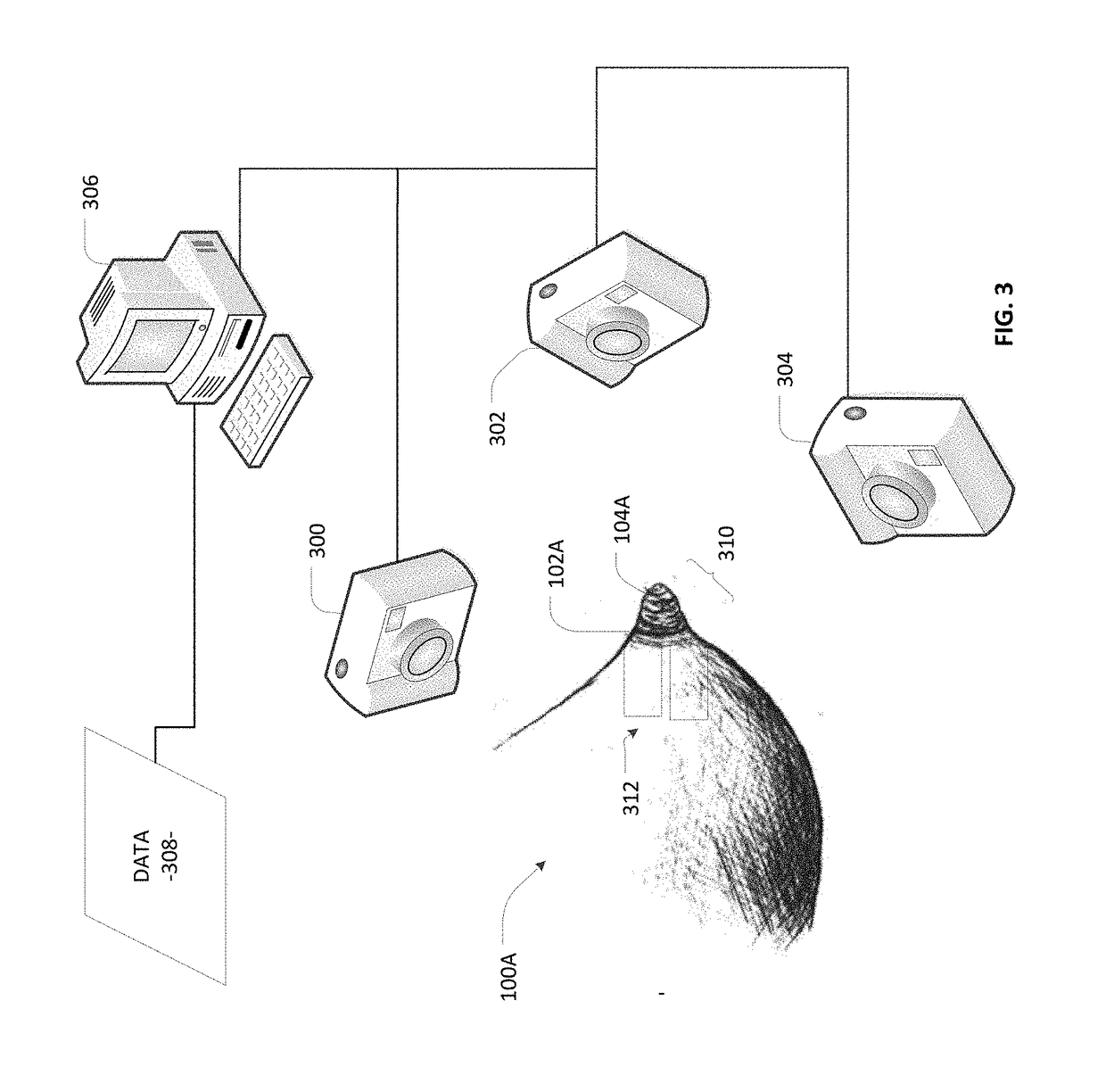Custom-made artificial nipple
a technology of three-dimensional printing and custom nipples, which is applied in the field of three-dimensional printing of anatomy, can solve the problems of preventing the proper nursing of newborns who are exposed to conventional bottle nipples or even conventional pacifiers, affecting the quality of baby products, and the safety of resins used in casting custom nipples from this impression, so as to facilitate suckling.
- Summary
- Abstract
- Description
- Claims
- Application Information
AI Technical Summary
Benefits of technology
Problems solved by technology
Method used
Image
Examples
Embodiment Construction
[0029]The female breast is ordinarily divided into 15-25 lobes that are separated by connective and adipose tissue. These lobes radiate out from the nipple and are subdivided into lobules. Each lobe drains into a lactiferous duct and each duct has a dilation called a lactiferous sinus behind the nipple for milk storage. As is well known, the ducts branch and grow when activated by estrogen and progesterone stimulation during pregnancy. These stimulated glandular units form alveoli which are secretory units lined by simple cuboidal epithelium, surrounded by a basement membrane and wrapped in myoepithelial cells which surround the entire alveolus. The developing alveoli replace much of the adipose tissue.
[0030]FIG. 1 shows one-such human breast in a resting state 100. The breast in state 100 is capable of producing milk for expression to an infant almost immediately upon demand, but in the resting state 100 has not has not yet let down the milk for immediate delivery to a child. The b...
PUM
| Property | Measurement | Unit |
|---|---|---|
| Structure | aaaaa | aaaaa |
Abstract
Description
Claims
Application Information
 Login to View More
Login to View More - R&D
- Intellectual Property
- Life Sciences
- Materials
- Tech Scout
- Unparalleled Data Quality
- Higher Quality Content
- 60% Fewer Hallucinations
Browse by: Latest US Patents, China's latest patents, Technical Efficacy Thesaurus, Application Domain, Technology Topic, Popular Technical Reports.
© 2025 PatSnap. All rights reserved.Legal|Privacy policy|Modern Slavery Act Transparency Statement|Sitemap|About US| Contact US: help@patsnap.com



